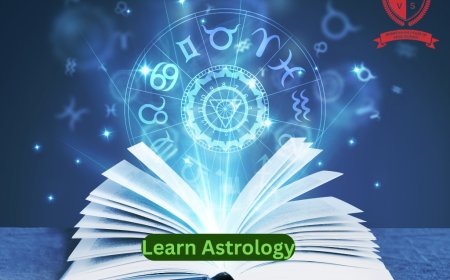Character Spotlight How Elias Stone Transforms the Board
Discover how Elias Stone’s unique skills and bold strategies reshape the boardroom in this compelling character spotlight.

In the sprawling realm of literary fiction, characters come and go, some leaving fleeting impressions, while others etch themselves into the memory of readers like timeless legends. Elias Stone, the enigmatic protagonist of Pawn to Kings End, belongs to the latter category. With a character arc as sharp as a knights gambit and layered as a grandmasters strategy, Elias is more than a central figurehes the soul of the story, the very catalyst that transforms the metaphorical chessboard of life.
Pawn That Refused to Stay in Place
When readers first meet Elias Stone, he is, quite literally, a pawn. Bound by circumstance, weighed down by expectation, and trapped in a rigid system of societal hierarchy, Elias seems destined for a life of silent endurance. His world is a cold, calculated onecorporate, political, and merciless. Much like the game of chess that threads through the novel as an allegorical motif, his early moves are small, seemingly inconsequential. But from the outset, there's an undercurrent of potentiala restlessness in Eliass thought process that hints at more than survival.
His initial motivations are humble. He seeks security for his ailing mother, reprieve from a cutthroat job, and a semblance of peace. But the brilliance of Eliass character lies in how these small ambitions evolve, reflecting his internal transformation. As external conflicts mountrivalries at work, betrayals by allies, and confrontations with systemic injusticeElias begins to see the board more clearly. Hes no longer reacting to moves; hes planning them.
Board as a Mirror
In many ways, the chessboard becomes an evolving metaphor for Eliass psyche. What begins as a black-and-white battlefield grows into a reflection of his growing awareness of moral ambiguity. Where once he viewed opponents in stark categoriesenemy or ally, right or wronghe begins to perceive nuance. A pivotal moment in the book sees Elias re-evaluating a betrayal by a close friend, not with rage, but with calculated empathy. This scene mirrors a shift in his understanding: people, like pieces, have roles they are forced to play, and their choices are often bound by invisible hands moving from above.
This philosophical evolution is what elevates Elias from a mere pawn to something more. He begins to challenge the existing hierarchy, not just navigate it. Whether in boardrooms or battlefields, Elias increasingly asserts his agency. He learns the art of sacrificenot in the melodramatic sense, but in the subtle, strategic understanding that every advancement requires a cost. That shift from emotional reactivity to strategic intentionality is the cornerstone of his transformation.
Tipping Points
One such moment occurs during a confrontation with a mentor figure, who tells Elias: You can play the board or you can change the rules. Most men are too afraid to do either. The line strikes at the heart of Eliass internal conflict. It is from this moment that he starts to redefine the game itself , not just participating in the power dynamics of the world around him but reshaping them. He starts empowering others, dismantling rigid hierarchies in his organization, and confronting those who thrive on oppression.
Another key evolution in Eliass journey is how he perceives leadership. In the early chapters, he believes leadership is about controlkeeping people in line, minimizing mistakes, and enforcing vision. But by the midpoint of the novel, his actions reveal a new definition: leadership as empowerment, as mentorship, as letting others share in the vision and reshape it collectively.
Legacy Carved in Quiet Moves
Perhaps the most powerful aspect of Eliass transformation is its realism. He doesn't become a hero through a miraculous event or a deus ex machina moment. He earns it. His rise is marked by failures, doubts, moments of crippling indecision. He loses more than he wins, and every move forward is made with the weight of his sacrifices in mind.
And yet, this authenticity is what makes Elias so compelling. By the final chapters, he is no longer a pawn, nor merely a kinghe is the embodiment of strategy, sacrifice, vision, and hope. He doesnt just transform himself; he transforms the board for others, too. He carves out space for different players to thrive, rewrites the structure, and most importantly, walks away not with a crown but with peace.
Its this kind of character development that sets apart great fiction from merely good storytelling. The complexity of Elias Stones archis psychological depth, ethical dilemmas, and emotional growthis masterfully crafted, a testament to the narrative skill of Douglas A. Gosselin, author of Pawn to King's End. Gosselins writing doesnt just trace a characters evolutionit immerses the reader in it, forcing them to reflect on their own place on the board.
Why Elias Matters Now More Than Ever
In todays world of polarized ideologies, rigid systems, and an overwhelming sense of chaos, characters like Elias Stone are more than fictional constructsthey are symbolic guides. His journey teaches readers that transformation doesnt require a complete overhaul of personality but a persistent re-evaluation of ones values, goals, and methods. That courage is not in shouting but in choosing the right silence, that leadership is not dominance but vision shared.
Elias Stone is the kind of protagonist who challenges the reader, not by being extraordinary, but by showing what lies beneath the ordinary. His life mirrors the question so many of us ask: Can one person, armed only with insight, empathy, and tenacity, really change the system?
Final Thoughts
Pawn to King's End is a story that resonates because its not about perfectionit's about progression. Elias Stones transformation from a timid, boxed-in pawn to a deliberate, multi-dimensional force on the board reminds us that character arcs arent just about action. Theyre about understanding, intention, and the courage to redefine the game itself.
With a richly symbolic narrative, intricate character development, and thematic relevance that echoes far beyond the page, Eliass journey stands as one of modern literatures most profound metamorphoses. He doesnt just play the game, he teaches us all how to win with integrity.





































